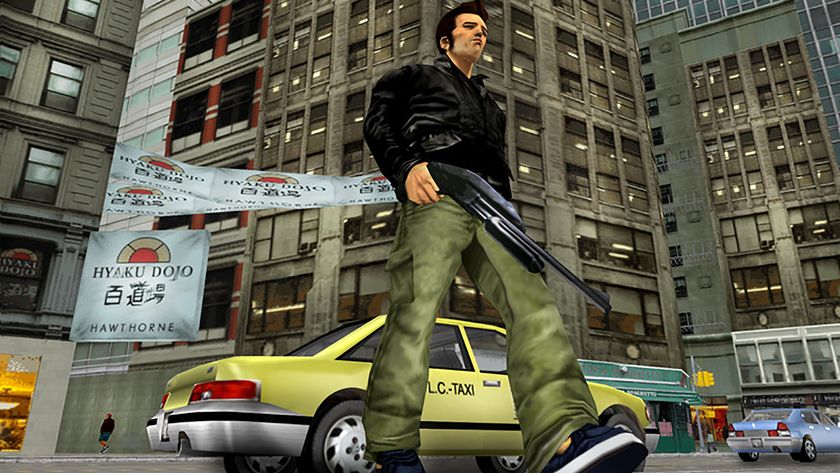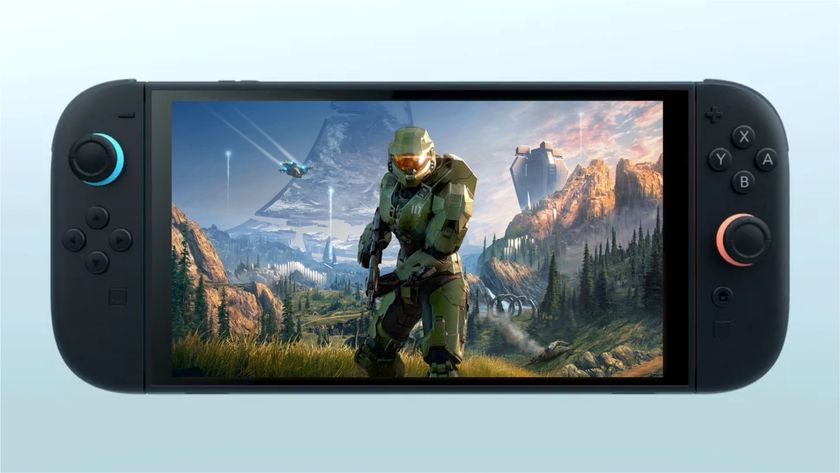5 game technologies that are truly next gen
Motion controls aren't as good as it gets
A glimpse into a could-be gaming future

As games continue to evolve, one constant keeps them anchored to the past: input devices. Controllers (and the mouse/keyboard combo in the case of PC gaming) are our firearms, our arms and legs, and our eyes. One device controls all of our senses. Now, the good thing about this is it provides a comfortable, familiar way to interact with a game. The bad? It's kind of hard to cultivate innovation outside of prettier games or a handful of new mechanics when our methods of interfacing with those games never changes.
So what about experiences that go beyond the controller? We've got motion controls, which exploded in popularity once Nintendo's Wii hit retail shelves back in 2006, and they're continuing to improve--but this isn't the only kind of forward-thinking tech you'll see a lot of down the road. From virtual reality to games you can play via the power of thought, the following technologies are worth getting excited about--and they're coming sooner than you might think.
Virtual reality
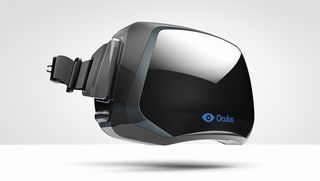
Science fiction films of the late '80s and early '90s did virtual reality zero favors when it came to shaping perception of the tech (The Lawnmower Man, anyone?). Sure, those films generated a ton of hype, but they also created expectations for VR that far surpassed the capabilities of the available technology--think Nintendo's Virtual Boy. At the time, head-mounted displays didn't support very high resolutions, while low frame rates and high latency made primitive VR extremely disorienting.
But the successfully Kickstarted Oculus Rift headset has thrust VR back into the spotlight--and this time, the hardware is close to making good on the promises of two decades ago. From a guillotine simulator to a multiplayer spaceship battle sim, there are a variety of early prototypes that are begginging to explore the kinds of experiences virtual reality can offer. And with HD consumer models of the Oculus Rift in the works, we can say the tech is here--all that's needed now is the content.
Augmented reality
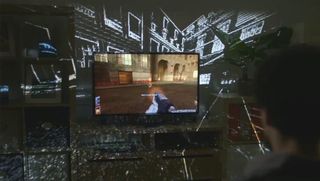
Whereas virtual reality immerses players in a computer-simulated world, augmented reality pulls the digital realm into our world. Marketing firms have approached AR with zeal, leaning on mobile devices to tie coupons and other rewards to physical locations. The game industry has also looked to mobile first when it comes to AR. The Vita game Reality Fighters, for example, pits two brawlers against one another in the real world, while the 3DS' Face Raiders allows you to seek and destroy augmented ships flying around in, say, your bathroom (insert poop joke here).
But projects like Microsoft's IllumiRoom, which uses a projector to overlay a game's environment or particle effects across your living room wall, provide an interesting look at where AR could be headed. Maybe one day we'll be able to convert our living rooms into holodecks. Maybe.
Haptics feedback

These days, vibrating controllers are standard--but there was a time when the only kind of touch feedback you'd find in video games came in the form of those weird arcade cabinets that emulated high voltage shocks. Oh, and in a little thing called the Rumble Pak. Today's force feedback vibrations are great for alerting you when you're taking enemy fire, but they fail to accurately simulate the heft of holding a weapon or the force that comes with shooting a gun. A new company called Tactical Haptics is aiming to remedy that.
Sign up to the 12DOVE Newsletter
Weekly digests, tales from the communities you love, and more
Tactical Haptics' prototype device--which we've been fortunate enough to try out--is a modified Razer Hydra motion controller. While playing a game, four plastic cylindrical grips move to manipulate the muscles in your hand, creating tension on the skin that simulates weight and motion. For example, we swung a flail in a prototype game, and the controller provided tactile feedback in such a way that we could feel the motion of the virtual weapon--it actually felt like we were swinging one in the real world. This device isn't commercially available yet, though Tactical Haptics told us they're hoping to put it on Kickstarter soon.
Digital scent

In theory, scent is a powerful supplemental tool for increasing immersion in video games. In practice, scent is a difficult immersive tech to tackle. Its got some very interesting issues of its own, from problems with delivery (what if it's too overwhelming, or not strong enough?) to overstaying its welcome (how do you get rid of the smell once a scene is over?). But the long-term benefits could easily outweigh the associated negatives.
Imagine being in the middle of a gunfight while the burning odor of gunsmoke tickles your nostrils, or piloting a ship in Assassin's Creed 4, enveloped by the salty ocean smells. These are the kinds of experiences on offer by devices such as Scent Sciences' ScentScape, which can interface with your gaming PC to produce a variety of smells. Or, you know, you could just buy some candles.
Biofeedback

Right now, there are two types of hands-free games: ones that involve the use of camera systems (like the Kinect), and ones that you play simply by thinking about doing so. Neuroheadsets, such as Emotiv's EPOC, can read the electric signals produced by the brain, which can then be translated into in-game actions.
For example, in the successfully Kickstarted action adventure game Son of Nor, a player wearing the EPOC can cast magic and use character abilities without touching the mouse or keyboard. One must only think about the appropriate action, and the headset will do the heavy lifting. If we can already sling spells with our brain meat, we can only imagine what we'll be doing with the power of thought in another 5-10 years.
Looking ahead
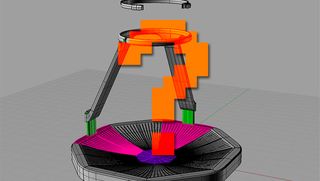
A lot of these technologies are still in their infancy, and it's likely we won't see any huge leaps in advancements or adoption for at least a few years down the road--plus, there will always be a place for the tried and true gamepad. But it's exciting to think of the brand-new experiences these types of devices may offer down the road. There's a lot of potential for entirely new genres to crop up, and for a degree of immersion we as gamers have never known. We just have to look beyond the controller to get there.
In the following weeks, we'll be taking an in-depth look at each of the technologies described here (starting with virtual reality), so be sure to check back if any of them pique your interest.
And if you're looking for more, check out the beer drinker's guide to gaming and the most shocking next-next gen game at E3 2013.
Ryan was once the Executive Editor of GamesRadar, before moving into the world of games development. He worked as a Brand Manager at EA, and then at Bethesda Softworks, before moving to 2K. He briefly went back to EA and is now the Director of Global Marketing Strategy at 2K.


